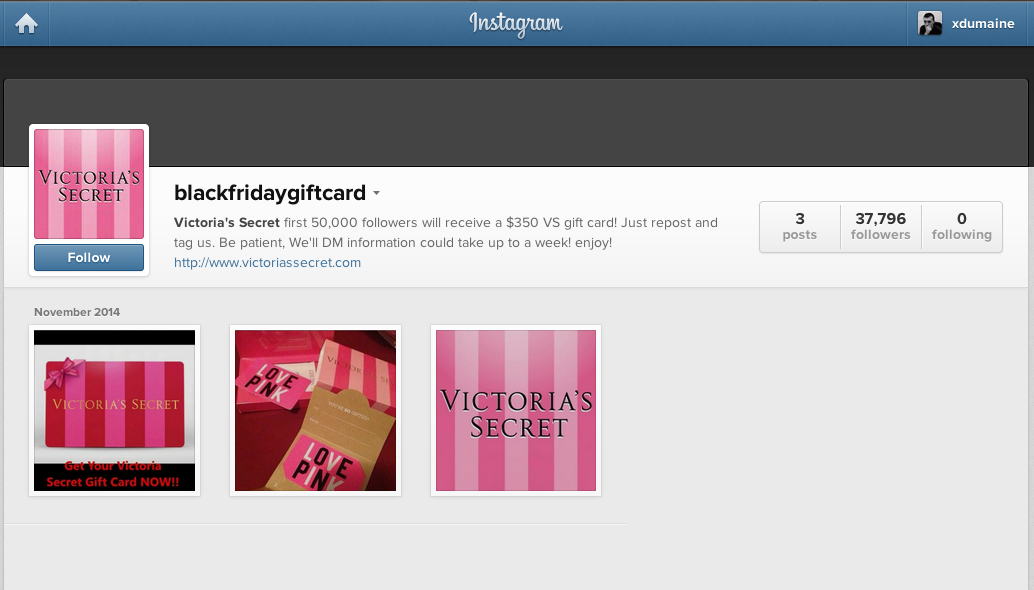How to Identify a Scam On Social Media
Scams and Phishing are pretty common in email, and email providers like Gmail, Yahoo, and Outlook are getting better and better at letting you know when an email might not be totally legitimate, or might put you at risk. They can do this because there are a number of very common strategies used in scam emails, phishing attempts, and spam - so common, that a computer can test for them. But what about social media?
There's such a lower level of filtering that occurs between users on sites like twitter and instagram, that when an account posts a message, the message is immediately distributed publicly, potentially to tens of thousands of users at once. So what can we do when the computers don't catch those scams for us? Those who work in software or IT might already be very familiar with these things, but the average social media user might not.
1. Be Skeptical
Always be skeptical online, especially when someone else is initiating the request for trust or information. If you have a bank account with, say, Chase, and you go to Chase.com, you can be pretty confident that that's really Chase. But what happens when an instagram account named "ChaseVisaPromo" comments on your photo out of nowhere saying something like this?
Follow Me! First 30,000 followers will get a prepaid Chase Visa!"
Chances are, that's not a legitimate account. Being skeptical can help you avoid falling for a scam or divulging personal information.
But how else can we be more confident that it's a scam?
2. Do the Math
If an account is promising some sort of giveaway, and they have numbers, do the math! Take a look at this very real example:

This account is promising $350 gift cards to the first 50,000 followers. Quick math tells you that they're promsing to give away $17,500,000. That's 17 million dollars. No real company would ever make that kind of giveaway.
3. Think Critically
Ask yourself a couple questions about the account. If, like the Victoria's Secret Example, above, the account is promsing you something for free, ask yourself "Why?" Why do companies do giveaways? Well that's easy - it's usually advertising, or getting more people into the store, or encouraging people to buy more of the product. But why would a company spend millions of dollars just to get instagram followers? The answer, usually, is that they probably wouldn't.
4. Think like a Marketer and use Common Sense
If you were in charge of advertising for a brand, would you upload a low resolution, grainy photo to your account? Take a look at the pictures in the Victoria's Secret example above? Notice anything off? They misspelled "Victoria's Secret" as "Victoria Secret" in a hard to read, off-font text in one of the pictures. No marketer or social media representative at a legitimate, company would do that.
Ask yourself some more questions: Does Victoria's Secret already have an instagram account? Probably. Why would they create a new account, unverified, member for 4 days, with only 3 pictures, to do a giveaway? They wouldn't. Reputation is huge for companies, and their online efforts are always going to be tied to their real sites and accounts.
5. Try to Prove Yourself Wrong
Try this one: assume that the account is a scam, and try to prove yourself wrong. This has worked for me many times in the past. Look for evidence that the account in question is real. Does the official site link to it? Is it twitter verified? How long has the account existed? How many posts do they have? If the account claims to be a major company, don't you think the account would have been around for more than a couple of days or weeks?
The most important thing you can do online is know who and when to trust. Use tools available to you to see if you're being duped.

